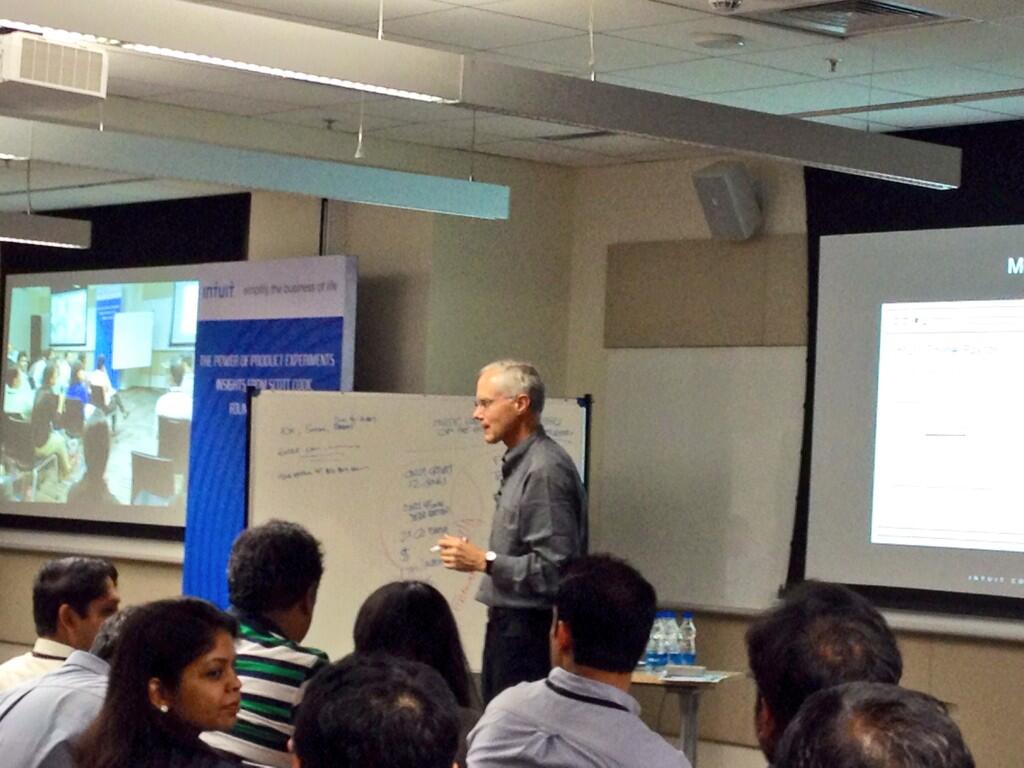How many times have you thanked someone (individual or organization) for giving you the opportunity in product manager's role? For many, getting into product management is a planned move but there accidental entrants as well, who just landed up this ship without much thought. Irrespective how you have landed up in this graceful position you owe to be thankful to this position for various reasons. What different this role has given you that others would not have? what are top things that you believe you are blessed because of being in this role?
I sat through long to figure out answer to these question, and could pen down top three returns from the role which I truly believed that I am blessed with.
Peeping tom: Being in seat of a product manager is an opportunity to peep into the life of all functional roles, example, sales, customer care, operations, engineering, finance etc. A product manager is leader of cross functional team and has active role in all cross functional discussions that takes place in and around the product interest. You as product manager get to see the highs and lows of most of these roles during interaction and trust me, on most of the occasions you will end up saying, 'thanks God, I am not doing that'. From whatever I could learn by peeping into the life of other functional roles I would say that, while life at most of the roles is challenging, it is never so urgent in product. Since product is largely a strategic role sense of urgency has very different meaning here and yes it also occurs less frequently in-comparison to roles like sales, operations, QA or customer support. My observations say that product management must see and understand these urgency and associated pain of these functional roles and try and work out a solution for noted occurrences. The opportunity of getting to learn about the life of all functional roles from such a close distance is unique to product management. I have always enjoyed doing this. This has helped in firming up my decision about my choice of profession and also helps me prepare better for taking on greater responsibilities.
Decision making and influencing : One of the best thing that happens to you when you take on the job of product manager is that you always find yourself in a situation wherein you are expected to take the final call. Not only the decision but also you are expected influence the group most, influence to convince and get support of the group. Be it a case of bug review wherein post long discussions and healthy arguments engineering team looks up-to you for prioritization or be it a meeting with sales team or customer, you are expected to work out on final resolution. This is a great situation to be in, expectations are high and you slowly and gradually develop habit and then character of taking decision. This is important, organization banks heavily on you to decision that would maximize the returns on investment and strengthen the strategic positioning of the product. The habit of taking decision develops a strong character that would not only help in professional but in personal life as well.
Forward thinking : One of the most common skill looked in a product manager's profile is of 'ability work on product road-map and product strategy'. By nature these skills require ability to be futuristic, ability to think, anticipate and create future opportunities of your product. It is blessing that you are expected to be so forward thinking and proactive in your job role. Think about roles that are so focused on retrospection or on postmortem. While all roles requires to have both the elements (forward thinking and retrospection), however forward thinking constitute the major part of a product managers role (unlike many others). Forward thinking in this case is not just logical or conclusive but also is on gut-feel, prudence and intelligence.
These are great KRAs that are sure to help develop a character that would be refined and strong to take on greater challenges in any position that you pick-up in your career. It is not so that other roles do not offer such opportunities but these characteristics are very prompt in the role of product manager. These habits are life-line of a product manager and true return on investment of the role of product manager.
So what are your ROI of being in the role of product manager? I would be happy to hear from you, please do share your ROI from the role of the product manager.
@mathurabhay














